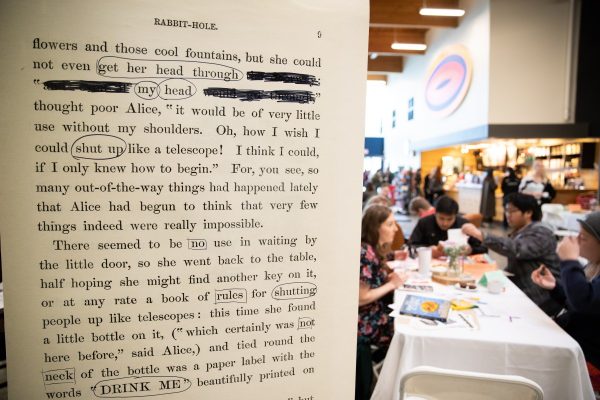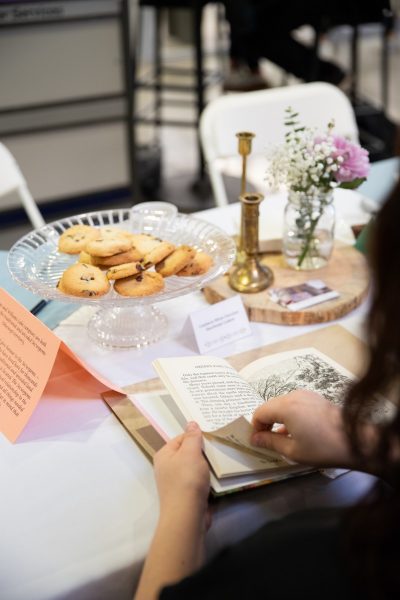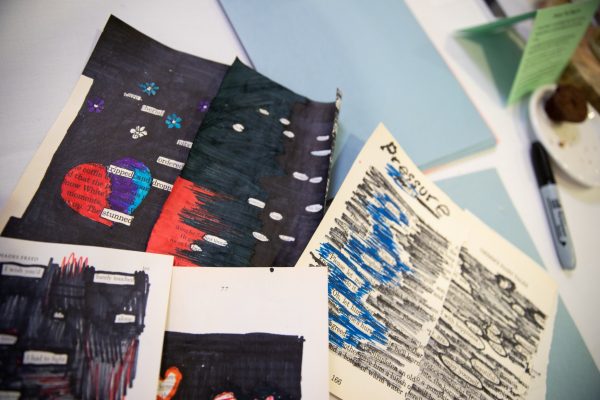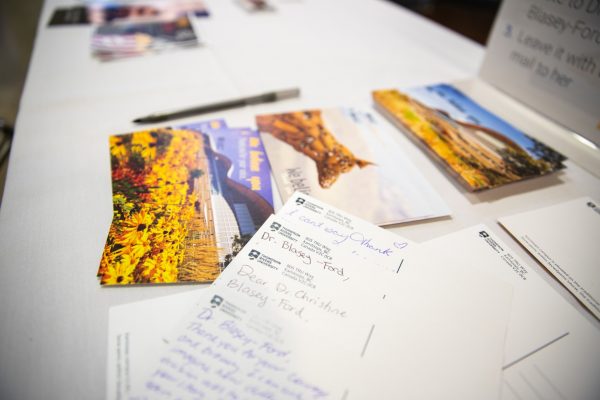As a Work Study student for the Faculty of Student Development’s Communications and Marketing team, Nicole Stanchfield is seeing student life in a whole new light. Currently completing her double major in psychology and sociology and is enrolling in the social work program in 2019, Nicole is documenting her mature student experience. She also wants to make time to explore university offerings to further expand her social, academic and personal horizons.
In collaboration with the Student Wellness Ambassador Team (SWAT) and Sexualized Violence Prevention and Response, The Wellness Centre hosted their annual Consent Tea on November 7.
Originally inspired by the video Consent: It’s as Simple as Tea, which uses the concept of offering, serving and consuming tea as a metaphor for consent, the event creates space for a dialogue around the nuances of rape culture and consent.
As a participant and a survivor, I approached the event with caution. I prepared myself emotionally for this conversation, but admittedly, I was going in guns blazing. I feared encountering individuals who would not align with my belief system. There’s always that one person hash-tagging #notallmen. On the contrary, I was pleasantly surprised at how civilized the experience was.
Those who attended were encouraged to wear all black to reflect the Black-Out Poetry concept – the icebreaker activity of the event. Black-Out Poetry reuses books, newspaper articles or recipes to rewrite and recreate narratives. Through the erasing and highlighting of powerful or provocative words, participants were able to create new stories from the remnants torn from old books. Tearing those pages out felt like a deviant act, which gave the task a cathartic rush.

After the poetry, I filled a cup with tea and found an empty seat. The tables were spruced up with white linen, beautiful flowers in vases atop cedar rounds, and antique china bearing drool-worthy cookies. The delightful and dignified décor was definitely after my own heart.

Diverse experiences were divulged, and the common denominator was about consent or lack thereof. As a survivor of sexualized violence that has spanned from childhood into my adult life, I was deeply impacted and inspired by the conversations.
The tenor of conversation was steeped in questioning about consent education. Why is it not taught on a community level? Understanding consent is the cornerstone to sexualized violence prevention, and it must be taught from an early age.
We discussed that providing an alternative dialogue in elementary schools to debunk that all-too-repeated “if a boy or girl hits or is mean to you, that means they like you,” which is echoed on the playground by teachers and parents alike. We agreed that a statement like that could be at the root of our problems as a community and perhaps why so many don’t understand the concept of consent.
The ramifications of sexualized violence is often downplayed in patriarchal society, and victims and survivors are shamed and blamed. Rape culture and its myths are reinforced through misogynistic and sexist narratives through popular culture and social media. Sexuality, consent and victimization have skewed approaches in the media, which normalizes a gender and sexual discourse. These narratives minimize the harm done and dismisses the responsibility of those who misuse their power. The stigma surrounding sexualized violence prevents survivors from speaking out and seeking help.

Wellness Centre Coordinator Chelsea Corsi states, “By increasing the knowledge around consent, these perspectives can be shifted. Listening with empathy to people’s experiences helps us to make more informed decisions in the future.”
As we navigate through our daily struggles surrounding our traumatic experiences, we must push forward as best we can through coping strategies, mental health support and community outreach. As survivors, the stories about our thriving, healing and sharing, count as great acts of resistance.
One of the tables offered a basket of postcards that were being sent to Dr. Christine Blasey Ford, who shared her testimony at the Brett Kavanaugh hearing. The intention was to tell her that we commend her bravery, and that we stand in solidarity with her and the many other survivors of sexualized violence.

Through the blending of art and conversation, this tea party provided a safe and supportive space to share my story. Events like this are essential to understanding our collective responsibility to engage in an ongoing conversation about consent, sexualized violence, feminism, body autonomy, and the dismantling of my arch nemesis, the patriarchy.
If you or someone you know has experienced sexualized violence, know that you are not alone and that it is not your fault. Whether the experience is recent or historic, Meaghan Hagerty, Sexualized Violence Preventions and Response Manager, is available to offer support in any way that you need. She welcomes you to bring a friend or two if need be.
Kamloops Sexual Assault Counselling Centre (KSAAC) is also available on campus every Tuesday from 1:00pm-4:00 pm.

